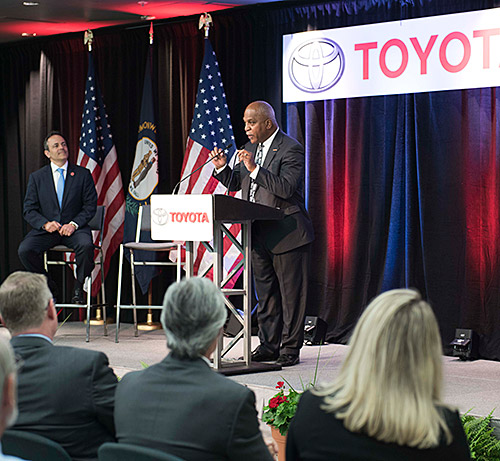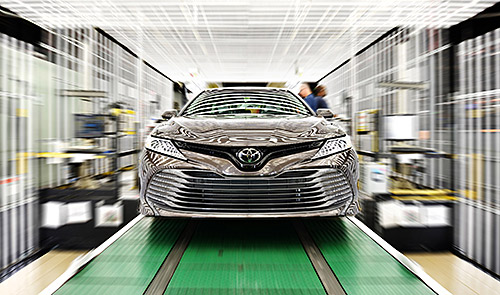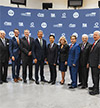Automotive manufacturing continues to thrive in the Bluegrass State, supported by an ever-expanding supply chain. Hundreds of auto suppliers make just about every conceivable part, ranging from bumpers to engine components to windshields to frames.
Kentucky is home to 513 auto-related facilities that employ over 100,000 workers. It is currently the number-one producer of light vehicles per capita in the United States. In April 2017, Kentucky ranked second in production among the 50 states. The state is on pace to produce an estimated at 1.3 million vehicles in 2017. By volume, the top three vehicles produced in Kentucky are the Toyota Camry, the Ford Escape, and Ford F-series Super Duty. Kentucky’s automotive industry exported nearly $5.44 billion in products throughout 2016 with parts, bodies, trailers, and whole vehicles combined.
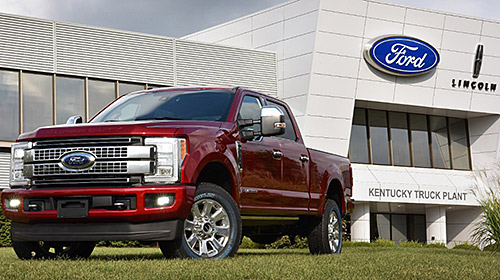
Kentucky’s Automotive Industry Thrives
Ford, GM, and Toyota — along with many automotive supplier firms — continue to invest in Kentucky.
-
Ford Motor Company
Louisville, KYFord Motor Company produces the Ford Escape and the Lincoln MKC at its Louisville Assembly Plant (LAP). The Kentucky Truck Plant (KTP), also in Louisville, produces the Expedition, Lincoln Navigator, and F-Series Super Duty trucks.
-
General Motors
Bowling Green, KYFor more than 35 years, General Motors has been making the Corvette exclusively in Bowling Green, Kentucky, where its Performance Build Center also specializes in hand-built, high-performance engines for the Corvette and Camaro.
-
Toyota Motor
Georgetown, KYToyota Motor Manufacturing Kentucky (TMMK) rolled its first Camry off its Georgetown assembly line more than 25 years ago, producing more than 10 million Camrys since then.
Kentucky is one of the top centers for advanced automotive manufacturing in the country, with four major assembly plants — Ford (two plants), General Motors, and Toyota.
Ford Motor Company produces the Ford Escape and the Lincoln MKC at its Louisville Assembly Plant (LAP), one of the company’s most flexible plants in the world. The Kentucky Truck Plant (KTP), also in Louisville, produces the Expedition, Lincoln Navigator, and F-Series Super Duty trucks. With the F-Series in such high demand, Ford continues to expand its production capacity and modernize its tooling process.
General Motors has been making the Corvette exclusively in Bowling Green, Kentucky, for more than 35 years. The GM facility also includes the Performance Build Center, which specializes in hand-built, high-performance engines for the Corvette and Camaro. Toyota Motor Manufacturing Kentucky (TMMK) rolled its first Camry off its Georgetown assembly line more than 25 years ago. Since then, Toyota has produced more than 10 million Camrys. Today, TMMK produces five different models in Georgetown, where its North American production engineering team is also located.
Automakers Continue to Invest in the Bluegrass State
Two major announcements from Ford Motor Company and Toyota Motor Manufacturing Kentucky in 2017 helped the state surpass its previous all-year, corporate investment record.
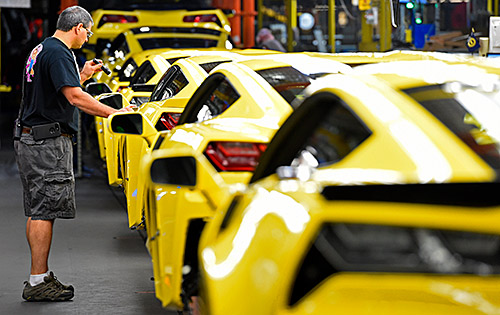
“Large SUVs are attracting a new generation around the world and we’re finding new ways to deliver the capability, versatility, and technology that customers really want,” says Joe Hinrichs, executive vice president and president of Ford’s global operations.
Louisville Mayor Greg Fischer indicated this high level of investment reflects the company’s confidence in the abilities of the regional labor pool. “When you invest this kind of money, it means you believe in the workforce,” Fischer says.
In April Toyota Motor Manufacturing Kentucky announced its plans to invest $1.33 billion to upgrade its Georgetown facility. Called the “Reborn” project, this project will secure 8,200 jobs and modernize the facility to increase manufacturing flexibility and capacity. Over the next few years, TMMK will replace or refurbish equipment and add new technology in multiple manufacturing areas, including stamping, body weld, paint, plastics, assembly, and powertrain. A new paint shop will also be constructed and equipped with the latest technology and equipment.
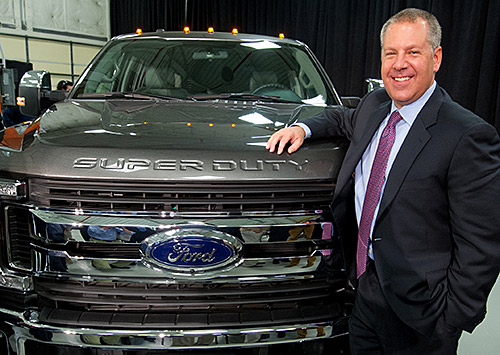
“This investment speaks directly to the quality of our people and our products, as well as the partnerships we’ve forged in the local community and across the state,” says Wil James, president of TMMK. “It will allow us to create a more flexible production environment, which will position our plant to compete globally for new models, build ever-better cars, and enable us to respond quicker and more capably to market demands down the road.”
